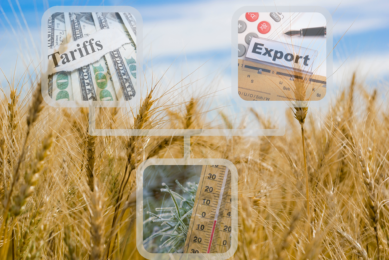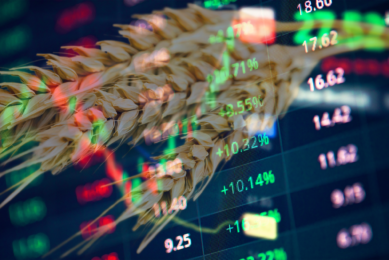Russia/Ukraine crisis exacerbating global food insecurity

The implementation of export restrictions to address food supply disruptions is increasing global food insecurity, according to the International Food Policy Research Institute.
Senior research fellows Joseph Glauber and David Laborde say Russia’s invasion of Ukraine has come at a bad time for global food markets. Russia and Ukraine account for 12% of total calories traded, and as the war continues there is a growing likelihood that food shortages, especially grains and vegetable oils, will become acute, leading more countries to impose restrictions.
Putting pressure on available food stocks
Although these benefit domestic markets, they come at the expense of net food importing countries. Past experience suggests that these trade measures will put additional pressure on available food stocks, pushing prices up and potentially threatening food security for the poor.
Countries imposing export restrictions jumped from 3 to 16
Glauber and Laborde used the IFPRI’s food export restriction tracker to analyse how the war in Ukraine has affected global trade. Since the Russian invasion began at the end of February, the number of counties imposing export restrictions on food has risen from 3 to 16, representing about 17% of total calories traded in the world.
Ukraine & Russia: Global commodity traders
Countries that have implemented export restrictions represent large shares of some of the major commodities traded in the world. Ukraine has restricted exports to ensure adequate supplies for its population during the conflict, while Russia’s export restriction on wheat predates the war and includes a floating export tax and export quota.
The 2 countries account for around 35% of the dollar value of total global trade in restricted items. Measured in terms of caloric value, the percentage share is even higher, say the authors – around 42% of total calories in restricted products.
Other notable suppliers imposing export restrictions include:
- Indonesia (ban on palm oil products),
- Argentina (ban on beef exports) and Turkey,
- Kyrgyzstan and Kazakhstan (bans on a variety of grain products).
Products affected
5 agricultural products account for almost 90% of imported calories affected by export restrictions. These are:
- Wheat – 31% of total calories affected
- Palm Oil – 28.5%
- Corn – 12.2%
- Sunflower oil – 10.6%
- Soybean oil – 5.6%
In terms of total trade in individual products, export restrictions affect:
- 35.9% of wheat exports,
- 55% of palm oil exports,
- 17.2% of corn exports,
- 78.2% of sunflower oil exports and
- 5.8% of soybean oil exports.
The remaining 10% of traded calories under export restrictions include a diverse basket of commodities such as tomatoes, beef, poultry and other vegetables.
Countries affected
Larger importers of wheat, corn and vegetable oils are most affected, including Central Asian nations, such as Mongolia, and North African countries, including Egypt and Sudan. Similarly, export restrictions on vegetable oils including palm and sunflower oils have important impacts on countries such as India, Pakistan and Bangladesh.
The authors urge countries to handle the global commodity problems in the same way as they did when posed by Covid-19 issues in early 2020 – most nations refrained from implementing bans and where implemented, they were short lived.
But they recognise the war in Ukraine is taking place in a different landscape. Initial stocks are low, except for rice and international policy coordination is wavering due to geopolitical tensions.
Food trade policy can move quickly, but it can have lasting impact on global poverty and hunger.
WTO lacks rules to discipline the use of export restrictions
And they add the World Trade Organisation (WTO) lacks rules to effectively discipline the use of export restrictions but say the upcoming June Ministerial Conference provides an opportunity to address this shortcoming.
“In the meantime, countries should cooperate to avoid a wave of detrimental policy like that seen in the 2007-8 food price crisis. Food trade policy can move quickly, but it can have lasting impact on global poverty and hunger. The Food and Fertiliser Export Restrictions Tracker project provides publicly available data on the global food trade policy environment in the context of the ongoing Ukraine-Russia crisis to aid in curbing this potential problem,” they conclude.











